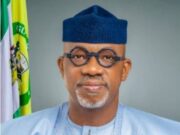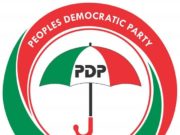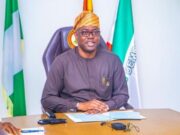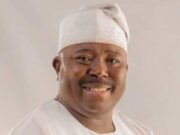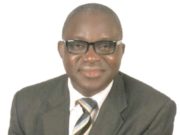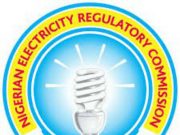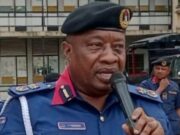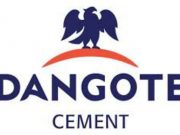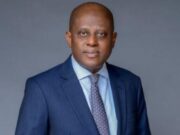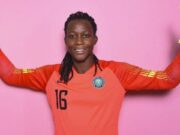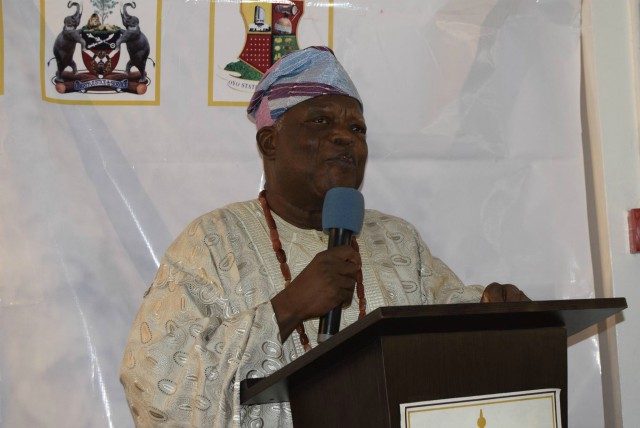Lagos, Oyo, Ogun, Osun, Ekiti and Ondo, the states behind the establishment of the Development Agenda For Western Nigeria (DAWN Commission) have been challenged to see to it that the commission remains vibrantly productive.
This challenge was thrown at the owner states by Emeritus Professor, Anthony Ijaola Asiwaju after delivering his lecture at the 7th edition of the monthly Yoruba Historical Conversation (YHC) tagged ‘Much Bigger Than In Southwest Nigeria’ hosted by the Commission at its head office, 10th floor, Cocoa House, Ibadan recently.
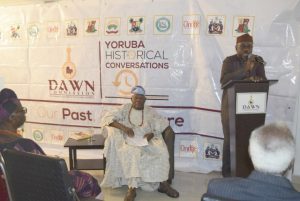
Emeritus Professor Asiwaju noted that the governments in the region have failed to utilize policy instruments and structures available both in Nigeria and Africa to develop borders in their various states, particularly governments of Lagos, Ogun and Oyo States.
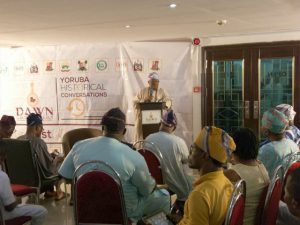
He opined that if truly the focus of the commission is for cooperation and integration, there is need for expansion of the scope covered by DAWN Commission beyond the western Nigeria because the people concerned are beyond the Western Nigerian soil.
The renowned scholar pointed out challenges of boundaries within the federation and international, ‘road-block’ by selfish politicians and narrow minded bureaucrats, he, however, urged the Acting Director General, Seye Oyeleye and his team to remain committed and not to rest on their oars to ensure that the goals and objectives are realized.
Emeritus Professor Asiwaju, while speaking, described the descendants of Yoruba as unique, the most creative and hard working in Africa adding that they occupy the most extensive area, in terms of homeland more than any other single African group of people.
The guest historian explained that Yoruba land is in three concentric circles of inner most, outer, and outer most, emphasizing that the Yoruba people are products of heritage of an Africa people that are not like other Africans, which many are beginning to appreciate.
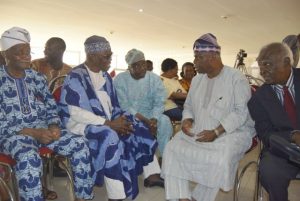
Asiwaju referred to the inner most circle as the ancestral homeland of Yoruba people, located in the three major regional divisions of Eastern, Central and Western within the six states of the South Western Nigeria, part of Kogi and Kwara States, South Eastern and Central Benin Republic, Central Togo and South Eastern Ghana, where cultural interaction, nursing and maintenance are taking place without minding border and language barriers.
He said further that the outer circle consists of Yoruba related people in the homeland, citing Edo, Itsekiri and Southern part of Sudan as part and parcel of ancestral homeland.
Emeritus Professor Asiwaju identified Yoruba people in Brazil, Cuba, Caribbean Island and some other foreign countries as examples of outer most circle, adding that they were those referred to as ‘Diasporas’ as a result of their past generations being subjected to slave trade.
Earlier in his address, the Acting Director General of the commission, Seye Oyeleye stated that the mission of the Yoruba Historical Conversation programme is to sustain progress of Western Nigeria and its people.
He added that “our mandate involves creating conversations and building the necessary coalition that would ensure that we do not lose our arts, culture and history.”
According to him “the commission is concerned about the loss of our social orientation and heritage, especially the preservation of our history, which is responsible, in the main, to the abridgement of self that is now clearly manifesting in almost all that we do. The neglect of the teaching of history and the lack of a sense of history has combined to create a generation with very scant regard for our values. We recognize that only a social revolution can assist in the much-needed recovery, and we are prepared to champion the process.
“The Yoruba Historical Conversations, with the broad theme: Our History, Our Future, is an initiative designed to assist the present generation of Nigerians, especially of Yoruba origin, to have a clear understanding of their history, and what it means to develop and sustain a high sense of the correct values and ideals, within the global space.
“The conversations, on a regular basis bring together people from diverse backgrounds, spread over generations, who would listen and relate with a Guest Historian. It is veritable platform for highlighting diverse aspects of Yoruba history and culture. At DAWN Commission, we believe that through this sort of effort, we can stave off the impending civilization collapse that is staring us in the face.
“The topic for the 7th edition titled ‘MUCH BIGGER THAN IN SOUTHWEST NIGERIA’ focused on the historical analysis of the spatial distribution of the Yoruba within West Africa and the South America, and how the culture and traditions are being kept progressively alive beyond Nigeria. The importance of the distribution of the Yoruba nation and interactions with the homeland beyond modern political divides and how it impacts on trade, globalization and economic competitiveness was also put into consideration.”
Guests at the event included Dr. Lalekan Are, Hon. Layiwola Agbaje, Prof. Funso Famuyiwa, Former GMD of Odua Group, Mr. Adebayo Jimoh, Dr Tunji Olaopa, Prof. Adelola Adeloye, Prof. Siyan Oyeweso, and Prof. Richard Olaniyan.
Others were former Benin Republic Ambassador to UNESCO Prof. Yayi Olabiyi, and former Benin Republic Ambassador to Nigeria Prof. Oyedepo Mouftaou Laleye, Ex-NOA Director, Mr Remi Omowon and several others.
Packaged by Kunle Gazali
















